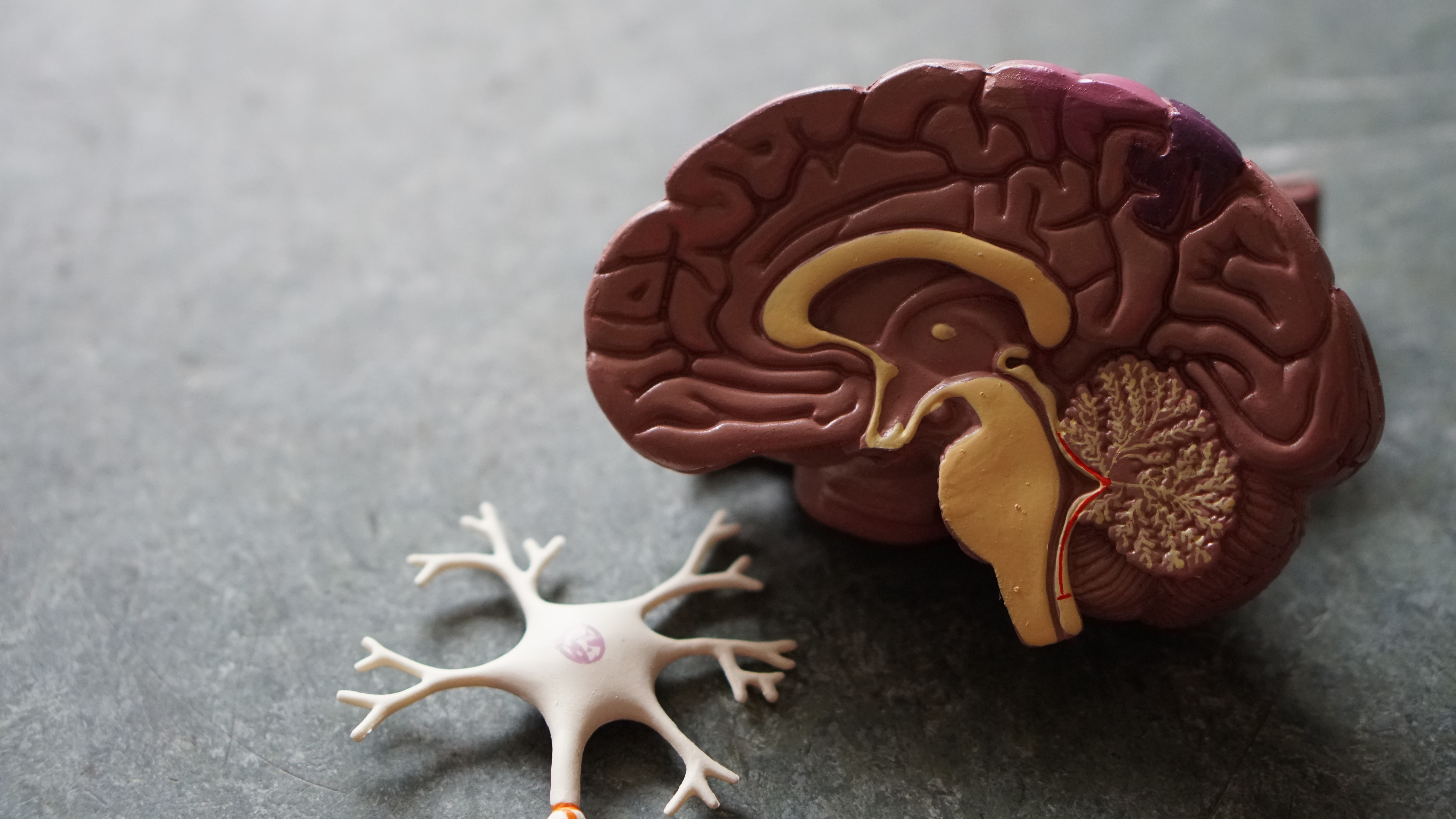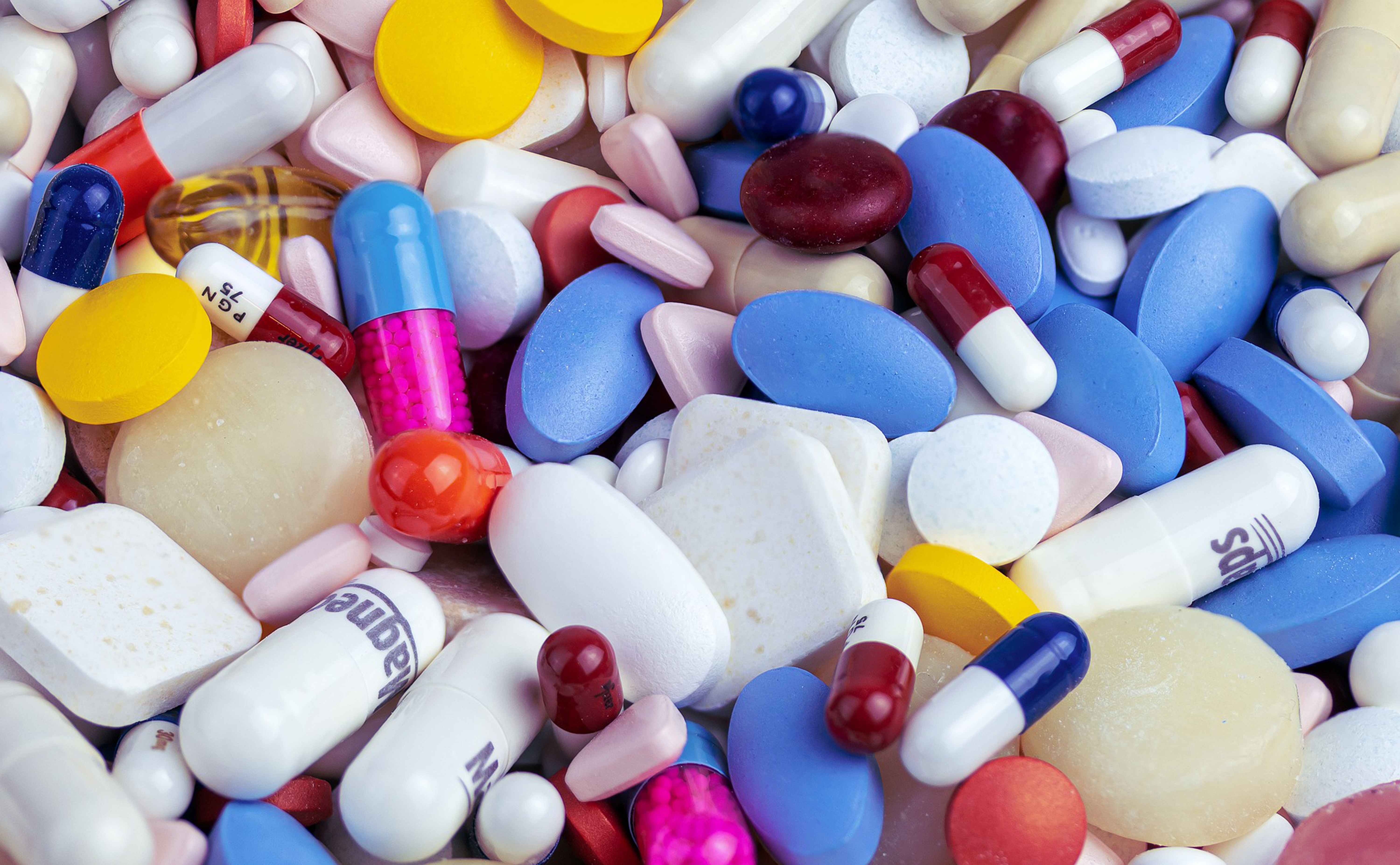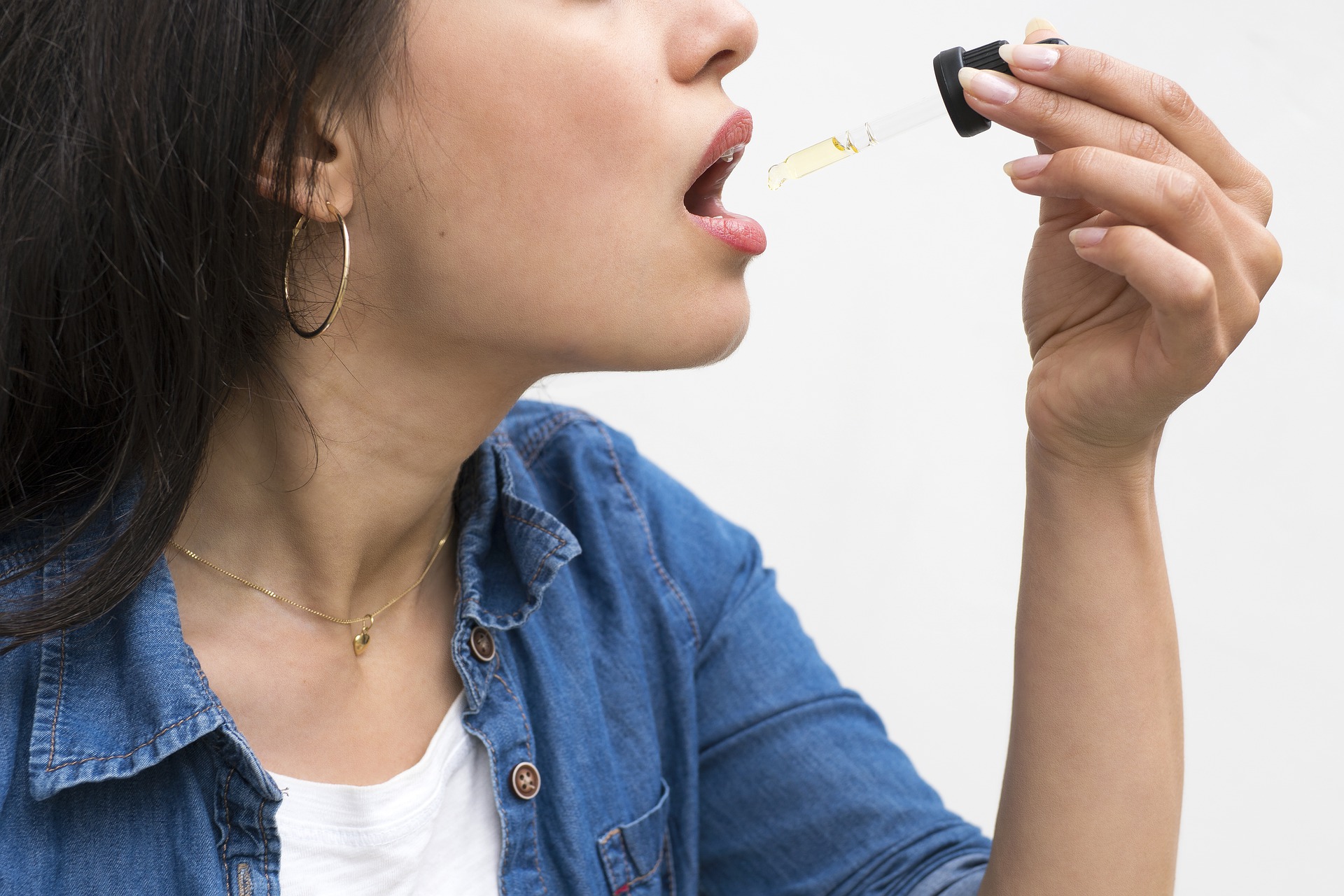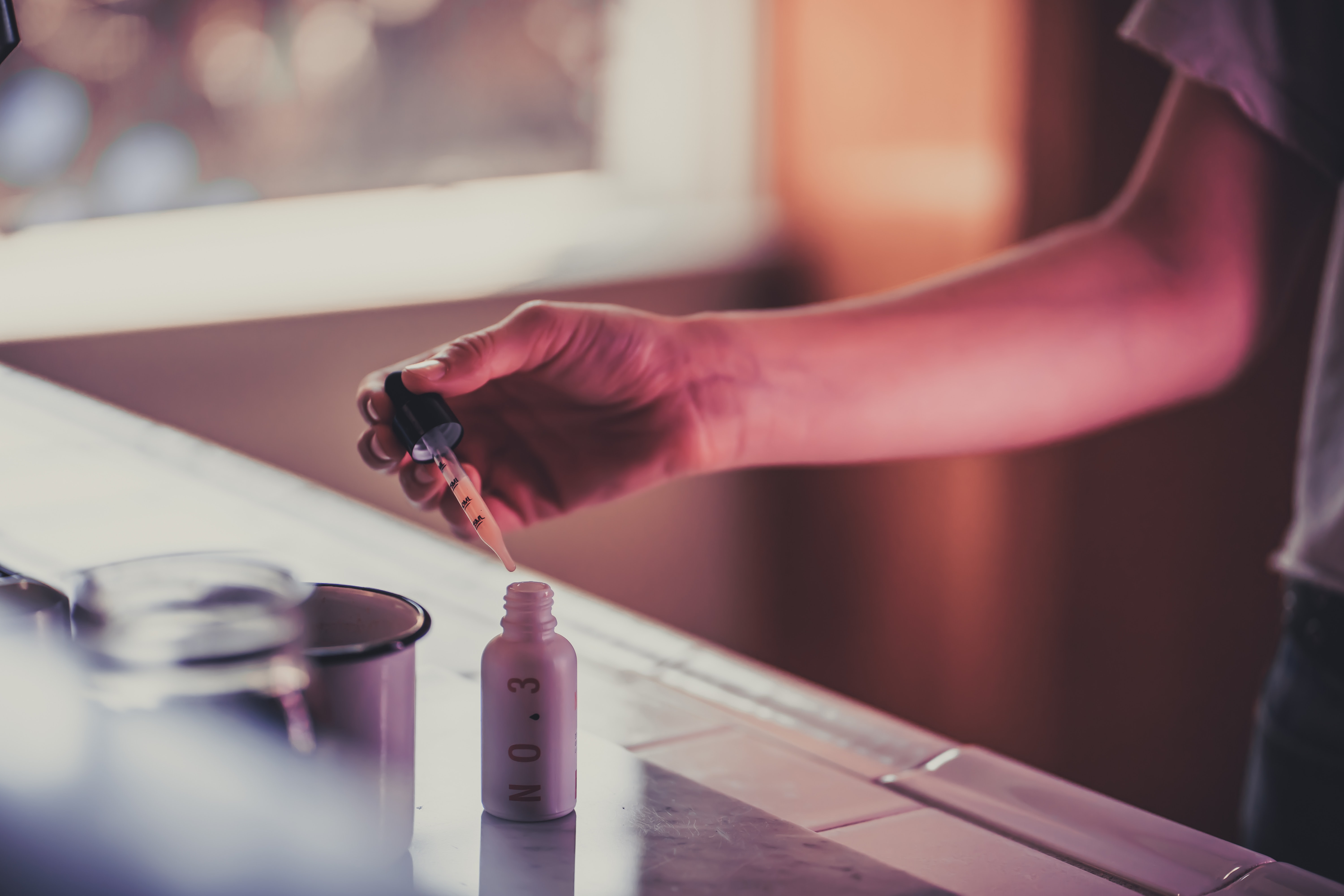
You know that saying, “Go with your gut”? or “What does your gut tell you?”
Well, your brain and gut have a much deeper connection than you may think.
In fact, it’s believed that our gut is actually our “second brain”.
Second brain

Scientists like to call this “second brain” the Enteric Nervous System (ENS), which is made up of two thin layers of over 100 million nerve cells that line your gastrointestinal tract—through your esophagus, all the way to your rectum.
And according to Jay Pasricha, M.D., director of the Johns Hopkins Center for Neurogastroenterology, “The enteric nervous system doesn’t seem capable of thought as we know it, but it communicates back and forth with our big brain—with profound results.”
She also adds that, “Its main role is controlling digestion, from swallowing to the release of enzymes that break down food to the control of blood flow that helps with nutrient absorption to elimination…”
Amazingly, researchers and doctors suggest that the ENS helps trigger the shifts of emotions and moods in people who battle with Irritable Bowel Syndrome (IBS) and other digestive problems as well, like:
-
Diarrhea
-
Constipation
-
Pain
-
Bloating
-
Upset stomach
-
And more…
Additionally, Dr. Jay Pasricha stated that, “For decades, researchers and doctors thought that anxiety and depression contributed to these problems. But our studies and others show that it may also be the other way around…These new findings may explain why a higher-than-normal percentage of people with IBS and functional bowel problems develop depression and anxiety… That’s important, because up to 30 to 40 percent of the population has functional bowel problems at some point.”
Thankfully, more studies are being published on the connection between the brain and the gut. And now, more than ever, people around the world are educating themselves on what they need to do to improve their gut health... which ultimately increases their mental health.
But here’s where things get really interesting…
Risks of antidepressants

Antidepressants are what gastroenterologists usually prescribe to patients with digestive disorders like IBS.
In fact, the push for antidepressants from doctors is higher than ever right now.
And while they have their place, if there’s one thing we know about antidepressants, it’s that they cause a whole host of unwanted side effects.
These side effects usually include:
-
Insomnia
-
Skin rashes
-
Headaches
-
Joint and muscle pain
-
Nausea
-
Diarrhea
-
Upset stomach
-
Internal bleeding
-
And more…
Research also shows that antidepressants decrease sexual interest, desire, and pleasure.
Not to mention, certain antidepressants may negatively interact with other pharmaceutical drugs, especially if that drug enhances serotonin activity.
It’s also been shown that people can build up a tolerance to certain antidepressants, causing them to lose their effectiveness. In which case, doctors tend to prescribe higher doses of these drugs.
There are other concerns as well…
In 2004 the FDA initiated a “Black Box Warning” on antidepressants due to the fact that they caused the risk of suicidal thoughts, hostility, and agitation in children and young adults.
And there are still other risks that aren’t being reported.
According to Joanna Moncrieff, a psychiatrist and researcher at the University College London, “They are not reported in the published literature, we know that—and it appears that they are not properly reported in clinical study reports that go to the regulators and form the basis of decisions about licensing.”
This is quite alarming, as human lives are at stake. And the truth is, there may be a lot more side effects linked to antidepressants than we currently know.
Here’s one example of not getting clear information of a prescription drug's side effects...
Peter Gotzche, a clinician researcher at Cochrane, tried to obtain further detailed reports regarding the side effects of European Medicines Agency’s (EMA’s) anti-obesity pills in 2007.
He stated that,“The EMA flatly denied us these reports… They talked about commercial confidentiality although there was absolutely nothing in these reports that was commercially confidential. We explained that all this secrecy actually cost human lives, but they weren't interested in that at all.”
Yet doctors continue to prescribe prescription drugs like antidepressants, which merely address our unwanted symptoms rather than the root cause.
“My view is that we really don't have good enough evidence that antidepressants are effective and we have increasing evidence that they can be harmful… So we need to go into reverse and stop this increasing trend of prescribing [them],” said Joanna Moncrieff, MD, a leading figure in the Critical Psychiatry Network.
So what is the solution?
Brain and gut connection

As we’ve already discussed, our brain communicates with our digestive system on a daily basis.
Take, for example, giving presentations or participating in public speaking. In most cases people feel an obvious stomach upset, like nausea, which then brings on feelings of panic, anxiety, and fear.
Or how about when we think of food? The very thought of a cheeseburger causes our stomach juices to start gurgling and we begin to feel even hungrier.
But the connection goes both ways…
Our emotions and daily stresses affect our digestive health.
And truth be told, the type of food you put in your stomach can make all the difference in how the chemicals in your brain functions.
After all, food is medicine!
So the real question is: How do we address the root causes that negatively affect our mental and digestive issues?
Best ways to improve your gut health
“Doctors are learning that one of the best ways to quell inflammation lies not in the medicine cabinet, but in the refrigerator.” –– A quote made by the Harvard Medical School.
The truth is, when we address the root cause, which is usually found in our “second brain”, better known as our gut, then we may be able to improve our mental health as well.
Some of the best ways to do this is…
1. Eating a balanced and healthy diet
 First and foremost, you need to know that there are pro-inflammatory foods and there are anti-inflammatory foods.
First and foremost, you need to know that there are pro-inflammatory foods and there are anti-inflammatory foods.
Pro-inflammatory foods
As you may know, ultra-processed foods make up the standard American diet. These foods include the following:
-
Red meat
-
Processed meat (deli meats, bacon, hot dogs, etc.)
-
Refined carbohydrates and flours (white bread, white rice, most desserts, etc.)
-
Sweetened beverages (colas, sports drinks, etc.)
-
Sugar and high-fructose corn syrup
-
Artificial trans fats (margarines, hydrogenated oil, etc.)
-
Vegetable and seed oils (soybean oil, canola oil, etc.)
-
Excessive alcohol
Here’s a good rule of thumb: a bag of Potato chips should only contain two to three ingredients: potatoes, oil (preferably not canola oil), and salt. Unless of course you have purchased a flavored bag of chips.
If you can’t pronounce or understand the ingredient listed on the package of food you’re about to buy, then it’s best to steer clear.
And speaking of oils, fried foods soaked in Omega 6 fatty acids can enhance inflammation to a great degree.
Another reason why pro-inflammatory foods are harmful is that they can alter your gut bacteria, thus causing an increase in chronic inflammation.
And where there is inflammation, there is pain, sickness, and disease.
In fact, studies show that pro-inflammatory foods raise blood sugar levels and increase the risk of obesity and Inflammatory Bowel Disease (IBD).
Other studies show that certain pro-inflammatory foods could increase the risk of colon cancer and heart disease.
Anti-inflammatory foods
Anti-inflammatory foods nourish the body and help reduce inflammation from within. These foods include the following:
-
Fresh fruits (strawberries, blueberries, raspberries, blackberries)
-
Fatty fish (salmon, sardines, herring, mackerel, anchovies)
-
Fresh vegetables (broccoli, avocados, dark leafy greens, plantains, etc.)
-
Lean meats (chicken)
-
Seeds (chia seeds and flaxseeds)
-
Ginger
-
Turmeric
-
Black pepper
-
Olive oil and coconut oil
However, there has been some research that suggests that certain vegetables could increase inflammation, like:
-
Tomatoes
-
Eggplants
-
White potatoes
But these foods shouldn’t be avoided entirely. Rather, they could be eaten on occasion or sparingly if inflammation is a concern.
While we know eating just a few anti-inflammatory foods for one day isn’t going to reduce your inflammation or digestive issues altogether, the longer you consume anti-inflammatory foods, the better you’ll likely feel.
In fact, research shows that certain anti-inflammatory foods may reduce the risk of chronic illnesses and diseases like cardiovascular disease, diabetes, and some types of cancer.
Other studies show that certain foods contain probiotics and prebiotics — both of which help balance gut bacteria — which reduce inflammation and other intestinal problems.
Foods packed with probiotics include:
-
Kimchi
-
Sauerkraut
-
Kefir
-
Fermented vegetables
-
And more
Foods packed with prebiotics include:
-
Bananas
-
Chicory
-
Garlic
-
Asparagus
-
Onions
-
And more
The more you embrace an anti-inflammatory diet, the better you’ll likely feel. After all, researchers have found that what we eat highly influences inflammation.
2. Getting quality sleep

Most people vastly underestimate the value of a good night’s sleep, when in reality, it’s just as important as following an anti-inflammatory diet.
According to Dr. Merrill Mitler, a neuroscientist at NIH and sleep expert, “Sleep services all aspects of our body in one way or another: molecular, energy balance, as well as intellectual function, alertness and mood.”
Besides waking up feeling refreshed and ready to tackle the day, the biggest benefits of quality sleep are…
-
Stronger immune system
-
Lower stress hormones
-
Reduced inflammation
-
Better memory
-
Easier to maintain a healthy weight
-
Lower risk of depression
-
Improved heart health
-
Easier to maintain a healthy appetite
In fact, during sleep there are many critical processes that happen for both the body and brain.
During sleep, we actually remove toxins that have been built up from burning energy during the day, and we flush those toxins from our brain and body.
But if you’re not getting enough quality sleep, your body doesn’t have the tools it needs to fight oxidative stress effectively.
This leads to things like anxiety, depression, cardiovascular disease, digestive disorders, weakened metabolism, weight gain, and so on.
Lack of quality sleep can also influence poor eating habits, which can manipulate how much serotonin we produce in our gut.
Not enough serotonin (which converts into melatonin which helps us sleep), can contribute to stress and inflammation.
And before we know it, we’re in an endless cycle of little sleep, poor choices, and chronic inflammation.
Dr. Mitler also stated that, “Ongoing research shows a lack of sleep can produce diabetic-like conditions in otherwise healthy people…”
And guess what?
The more you improve your diet with anti-inflammatory foods, the more you may improve your sleep cycles.
3. Consuming CBD oil for digestive disorders

CBD has become quite the hot commodity these days, partly because it’s a powerful anti-inflammatory.
But how exactly does it help with digestive disorders and mental health?
According to Dr. Aimee Gould Shunney, a naturopathic physician, “The ECS is an avid participant in normal gut function. The exact mechanisms of action are still being defined… CBD is an immune modulator and a potent anti-inflammatory agent. In addition, it helps to balance the ECS, and therefore has tremendous potential to positively impact a variety of digestive complaints.”
She goes on to say, “Deficiencies in the ECS are associated with pathological states including irritable bowel syndrome (IBS), colorectal cancer, and celiac disease. Clinical endocannabinoid deficiency syndromes (CEDS) may be improved with CBD because it prevents the breakdown of our ECS, prolonging their action. In fact, this is one of the main mechanisms of action of CBD.”
Not to mention, stress and anxiety play a huge role in our gut health. But studies show that CBD can help reduce both stress and anxiety, and improve sleep.
It’s also been shown that CBD can impact the enteric nervous system, otherwise known as our second brain, through our serotonin receptors.
Now we know what you might be thinking…
How much CBD should I take to improve my gut health?

If you’ve never taken CBD oil before, it’s best to start slowly, with a low dose. We recommend no more than 25mg once or twice a day. You can always increase the amount over time.
And while we know that people are quick to ask, “How does CBD make you feel?”, the truth is you may not feel anything at all… and that can actually be a good thing.
Rather than focusing on what you feel, pay attention to what you don’t feel –– less pain, no aches, no more cramps, etc.
And here’s the best advice we can give you: stay consistent with CBD oil. Don’t just take it occasionally here and there. If you really want to see results, you need to take it daily.
Now it’s safe to say that CBD is not a “cure-all”, but studies show that it can be just as effective as antibiotics and antidepressants.
This means it can be a less invasive and a more natural approach to digestive disorders like IBS, IBD, and others.
Still, we advise you to consult with your doctor if you are currently taking any prescription drugs.
In the end, the more you focus on diet, sleep, and incorporating natural supplements like premium CBD oil into your daily routine, the better your gut and mind will likely feel.


